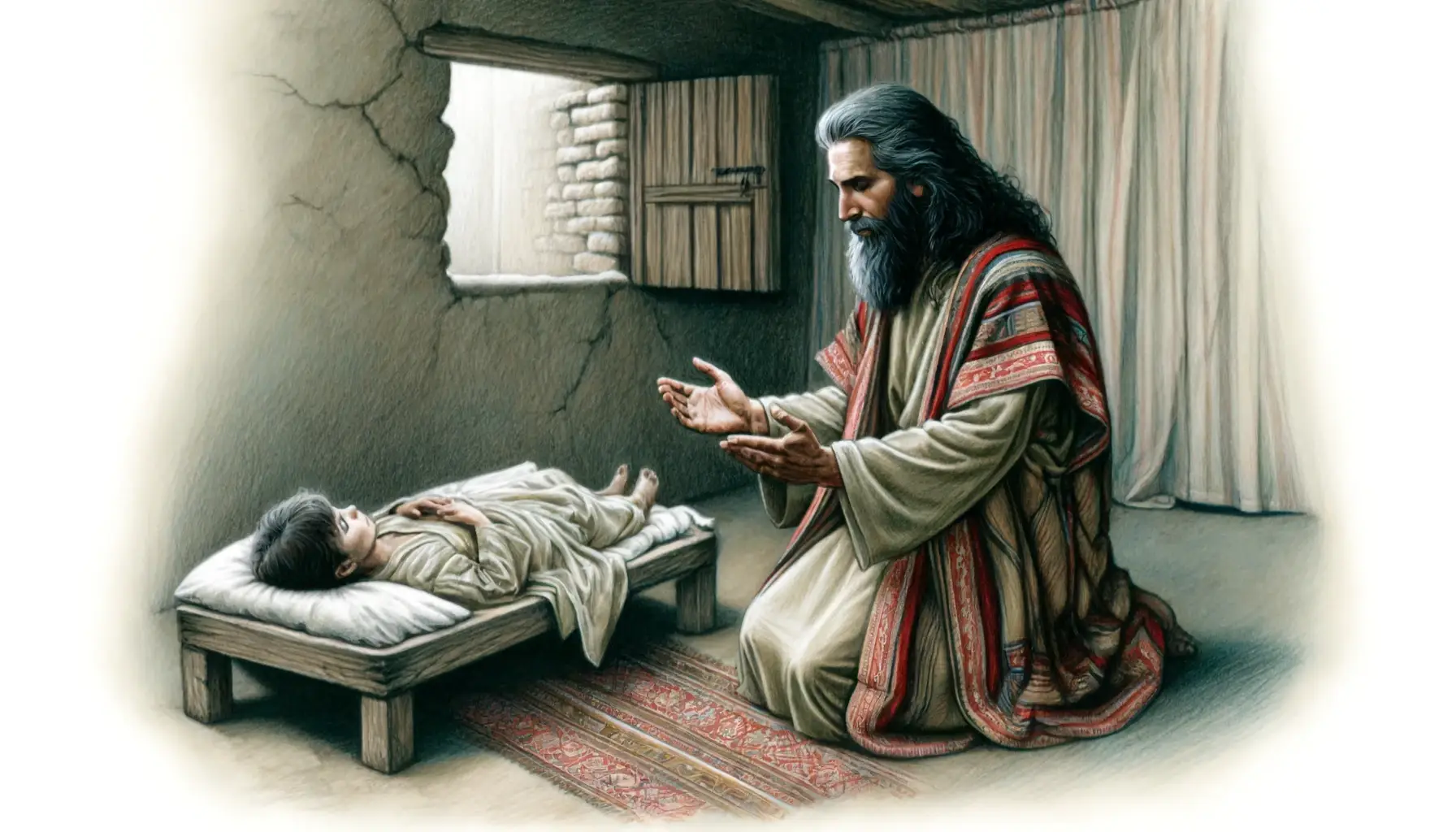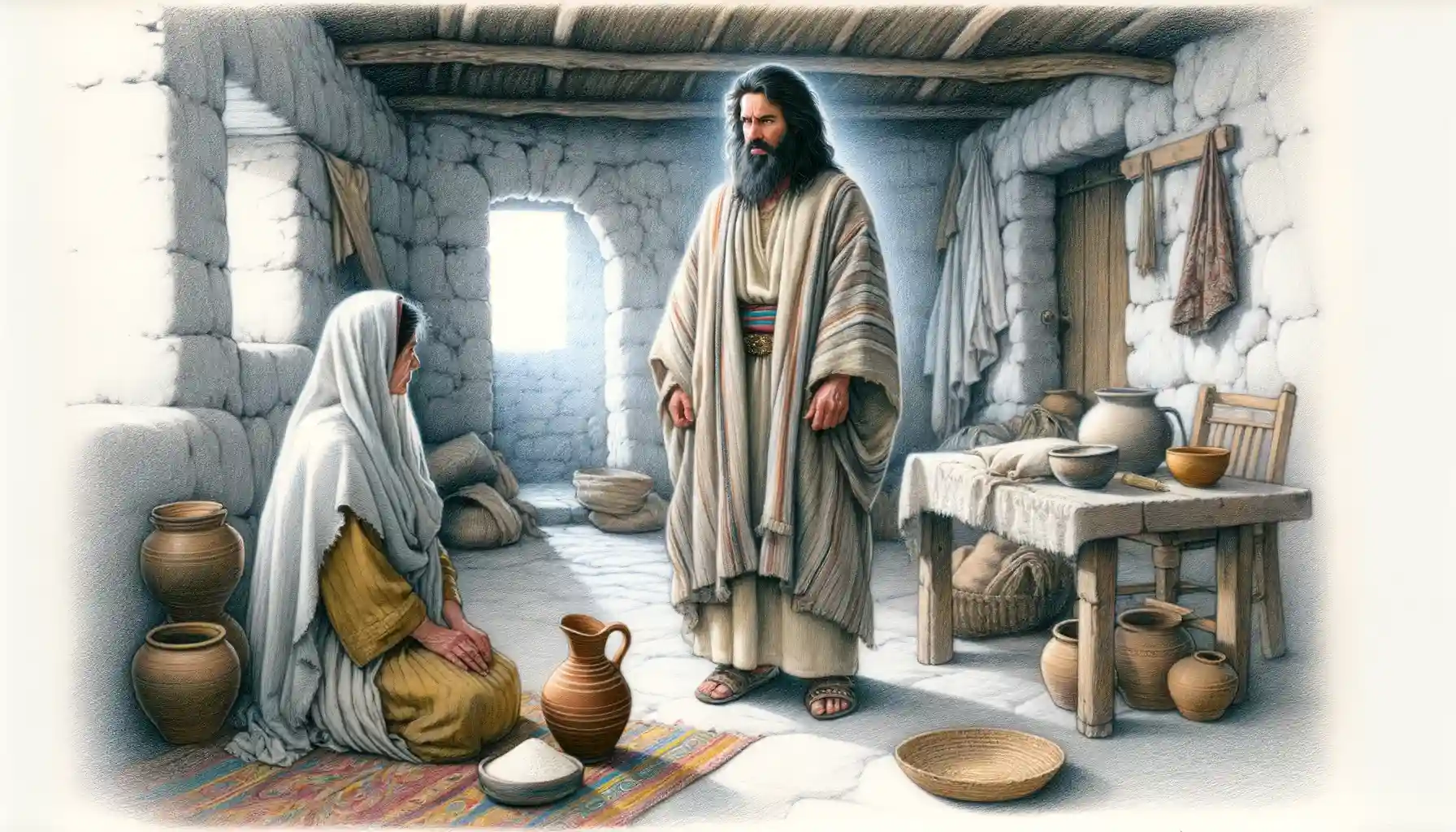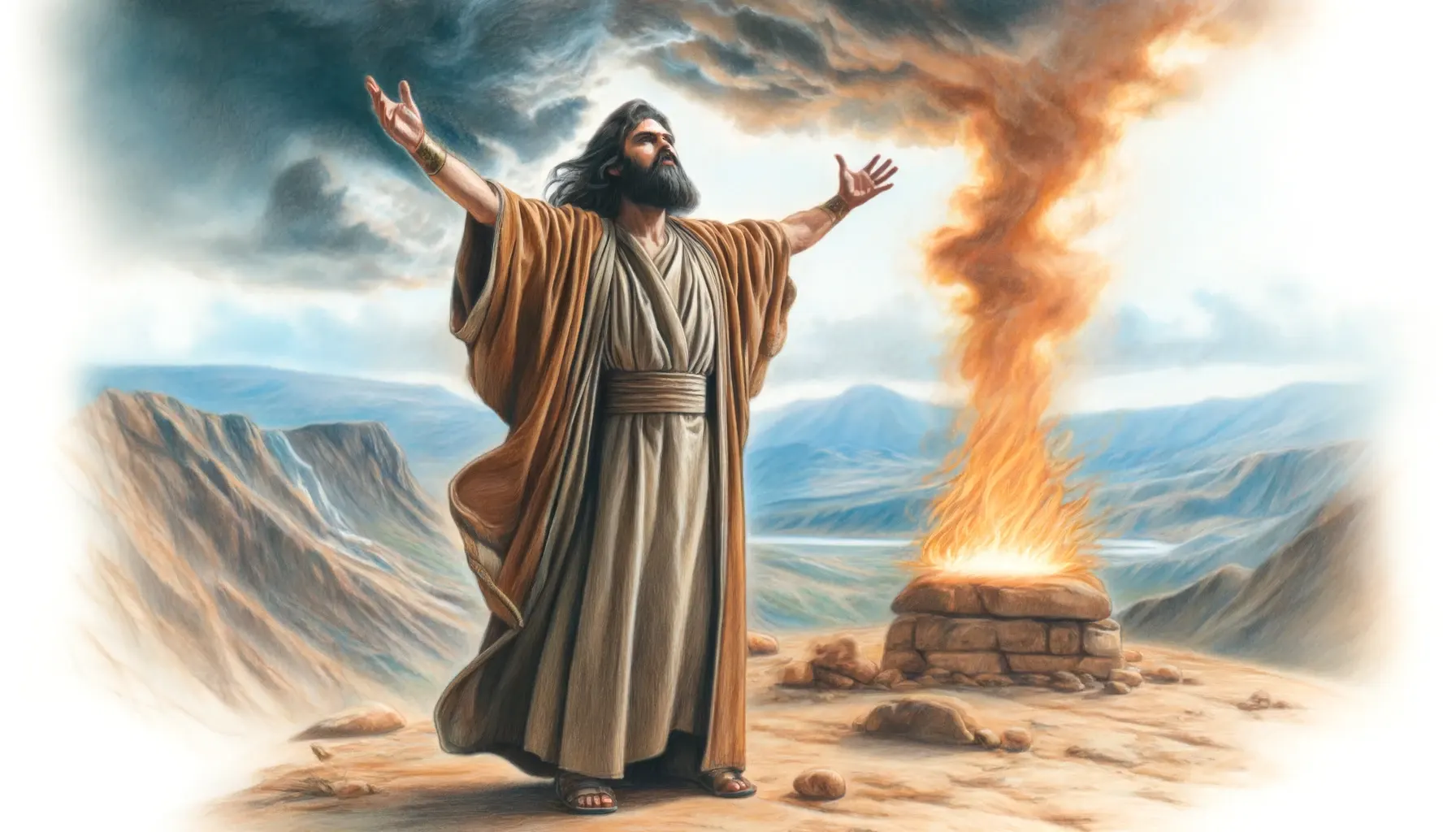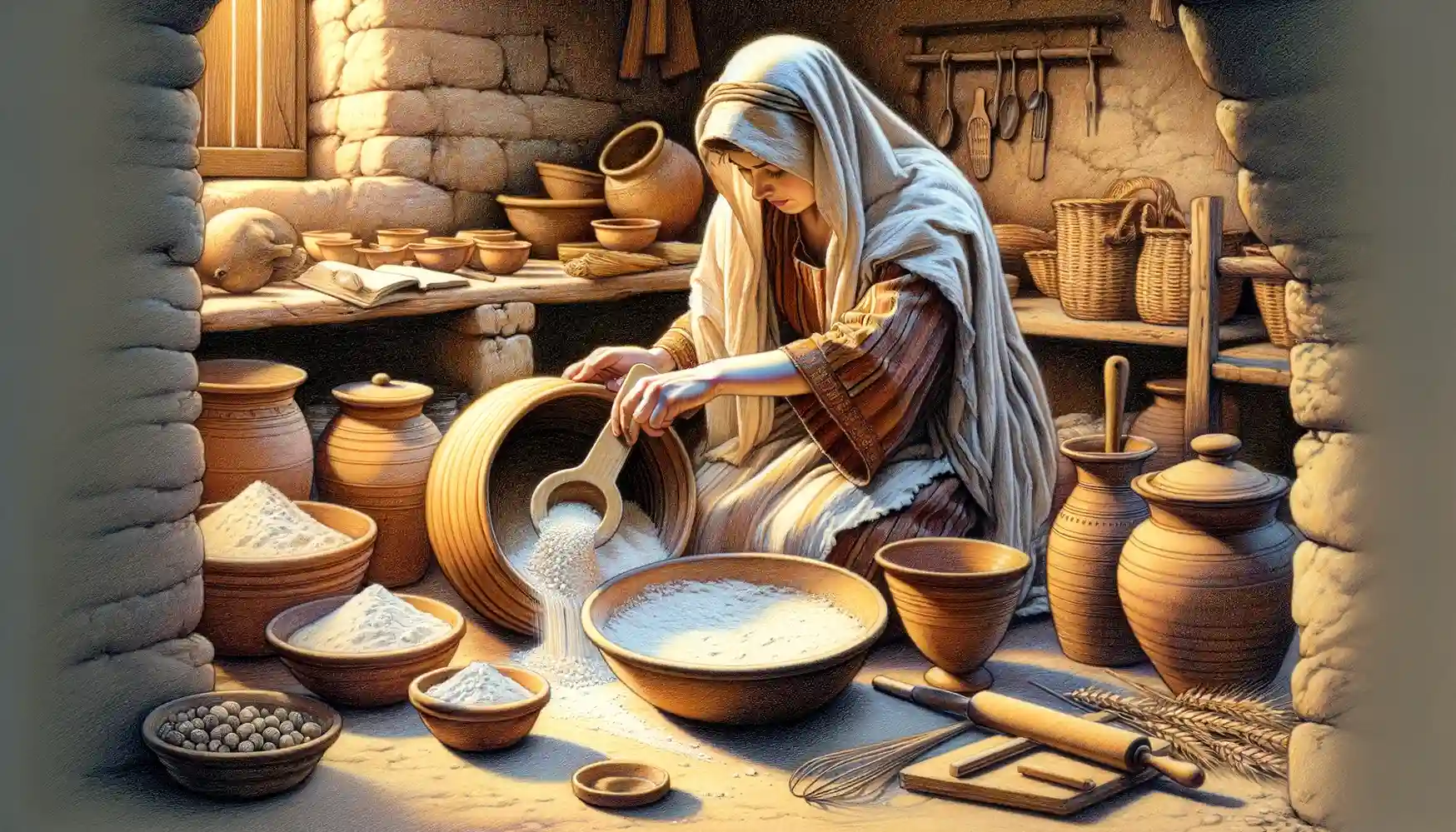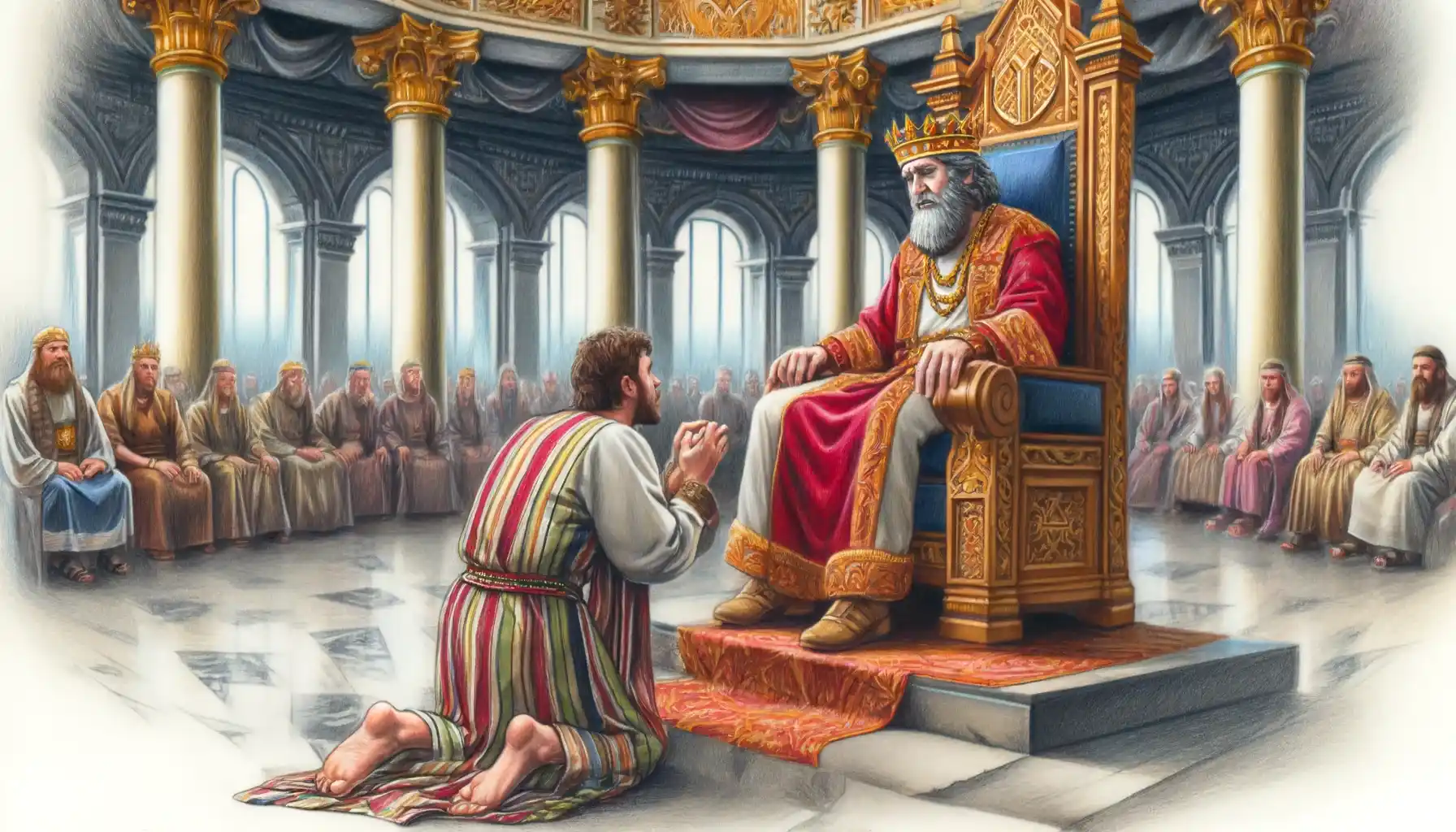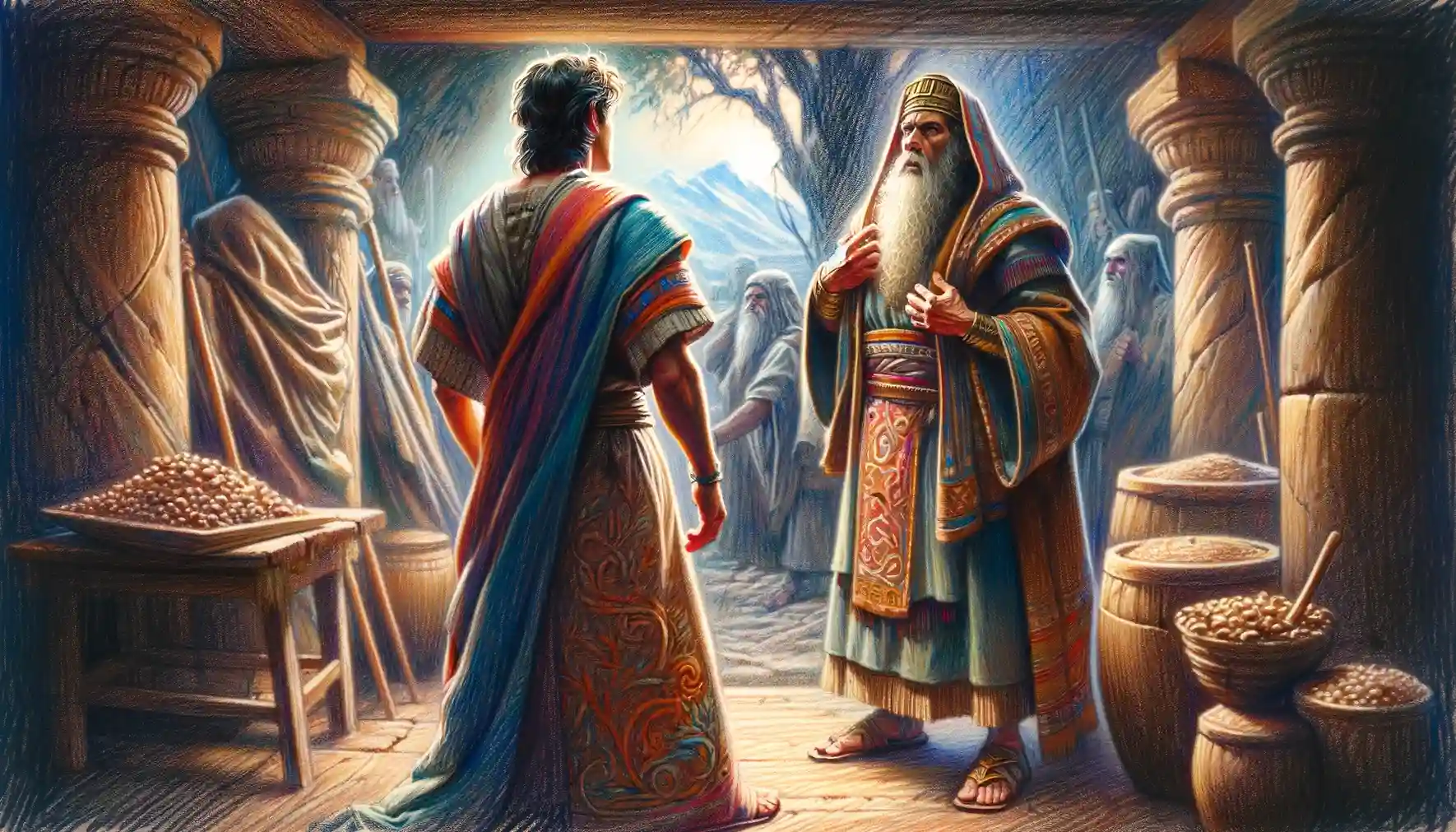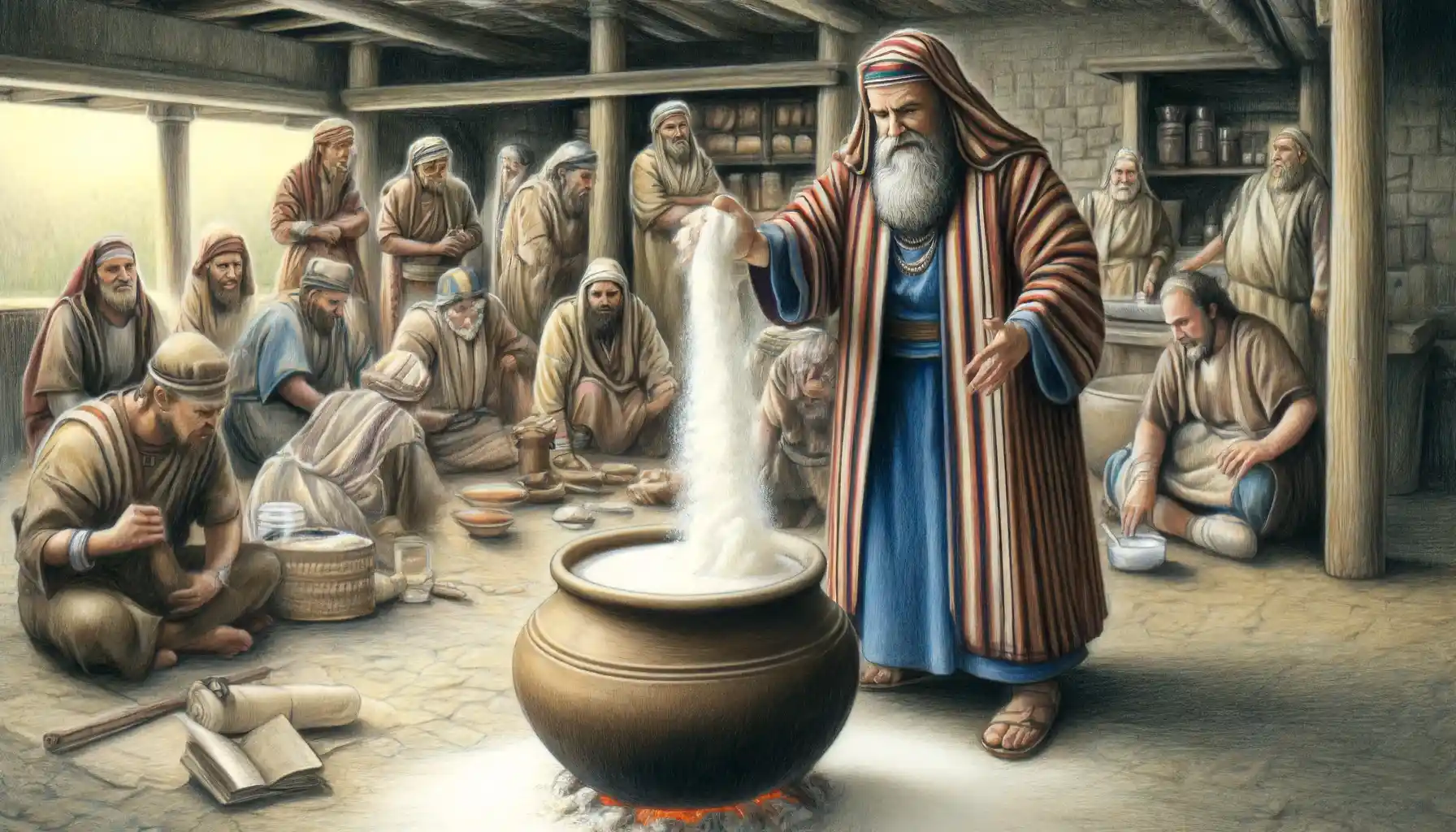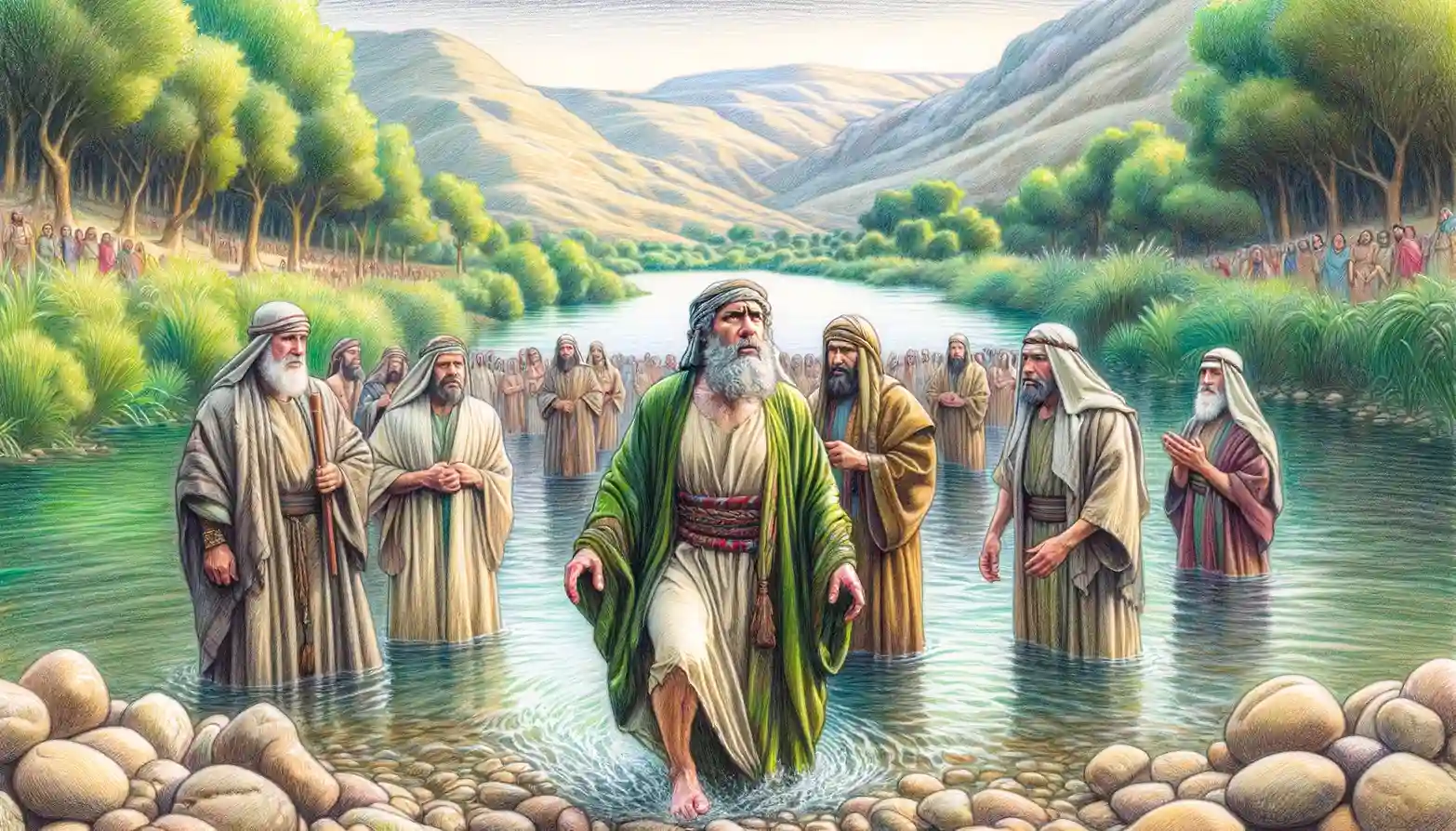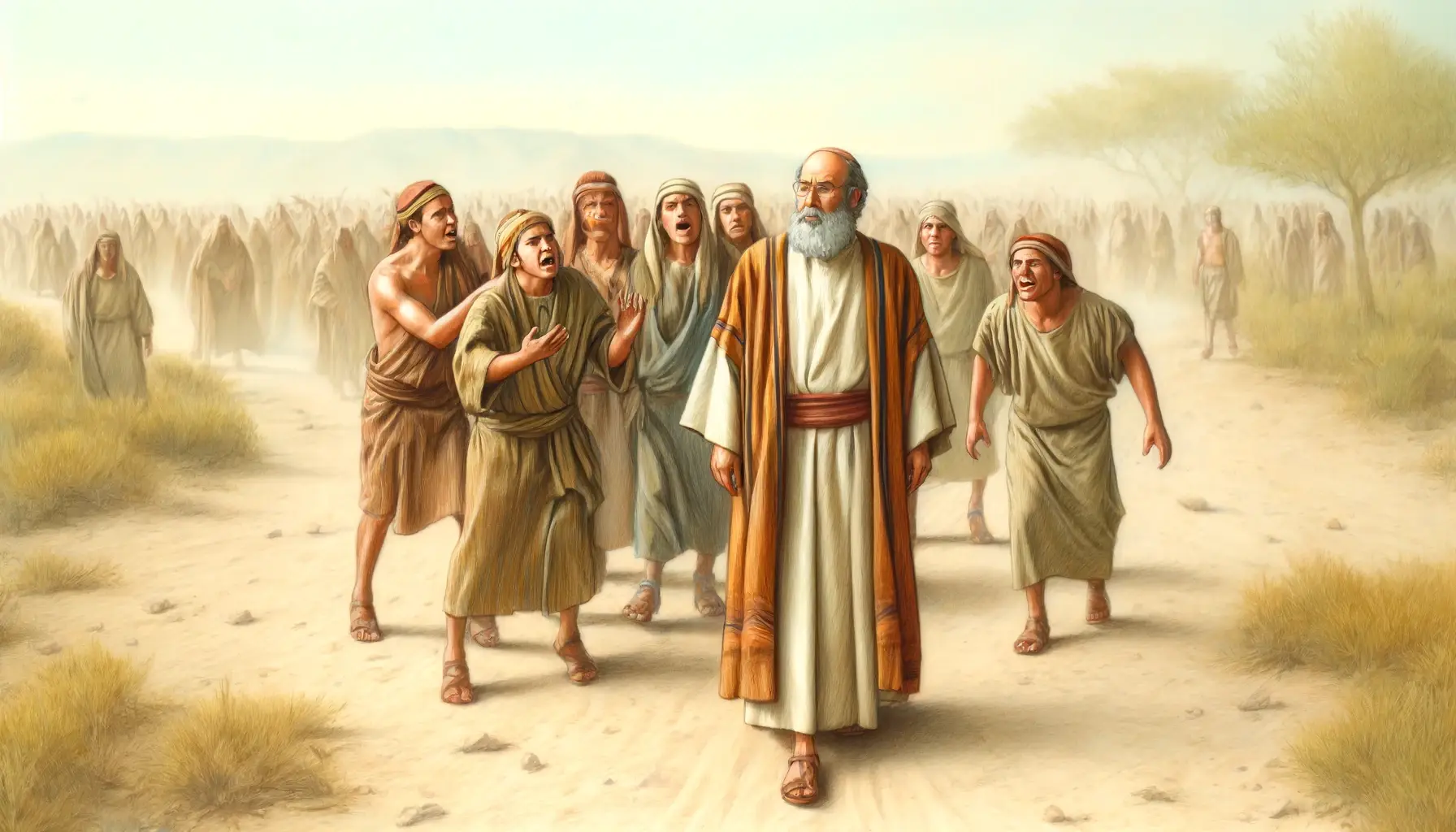In the narrative of 1 Kings 17:17-24, Elijah raises the widow’s son from the dead in Zarephath, showcasing God’s supreme power over life and death, and reinforcing the prophet’s authority as a true messenger of Yahweh, thereby deepening the widow’s faith and illustrating the reach of God’s miraculous intervention beyond Israel.
During a severe drought, Elijah miraculously provides a widow in Zarephath with a continuous supply of flour and oil, as recorded in 1 Kings 17:14-16, demonstrating God’s unwavering provision and the profound faith of those who trust in His promises.
Elijah’s announcement of a multi-year drought in 1 Kings 17:1 serves as a divine judgment against Israel’s idolatry, directly challenging the worship of Baal and asserting Yahweh’s supreme control over the weather and the fertility of the land.
Elijah, a defining prophet in the Hebrew Bible, is celebrated for his unwavering dedication to God, most notably demonstrated through his dramatic confrontation with the prophets of Baal on Mount Carmel, where he proved God’s supreme power by calling down fire from heaven.
The Parable of the Yeast, as recounted in Matthew 13:33 and Luke 13:20-21, illustrates how the Kingdom of Heaven, symbolized by yeast
The Parable of the Unforgiving Servant, as told in Matthew 18:21-35, illustrates Jesus’ teaching on the necessity of boundless forgiveness, depicting a servant who, after being forgiven a massive debt by his king, refuses to forgive a minor debt owed to him by another, leading to his punishment by the king who revokes his mercy in response to the servant’s lack of compassion.
In 2 Kings 8:7-15, the interaction between Elisha and Hazael highlights complex themes of divine foreknowledge, human agency, and ethical responsibility, as Elisha prophesies Hazael’s future atrocities against the Israelites and Hazael subsequently ascends to power by murdering King Ben-Hadad, embodying the troubling nexus of prophecy, moral choice, and political ambition.
In 2 Kings 4:38-41, Elisha miraculously neutralizes a pot of poisonous stew by adding flour, transforming a deadly meal into a safe and nourishing one for the prophets during a famine, demonstrating God’s providence and the prophetic power to safeguard and sustain the community in times of crisis.
In 2 Kings 5, the story of Naaman’s healing from leprosy not only exemplifies the transformative power of simple faith and obedience to God’s commands, as demonstrated by his instructed immersion in the Jordan River, but also highlights themes of humility, the universality of God’s grace, and the severe consequences of greed and deception, illustrated by Gehazi’s downfall.
In 2 Kings 2:23-24, the narrative where Elisha curses mocking youths who jeer at his prophetic authority, resulting in two bears mauling 42 of them, starkly illustrates the severe consequences of disrespecting God’s anointed prophets and underscores the sacredness of the prophetic office.

